
AE 1094 - The Goss
Australia's Most Dangerous Race is Cancelled
Learn Australian English by listening to this episode of The Goss!
These are conversations with my old man Ian Smissen for you to learn more about Australian culture, news, and current affairs.

In today's episode...
Welcome back to The Goss!
In today’s episode, we talk about Australia’s most dangerous horse racing club!
Yes, the Wallabadah Jockey Club has closed down after 169 years of operation.
Race organizers have concluded that its race track no longer meets NSW’s horse racing standards.
This is because of the race track’s terrain – it has up hills and down hills, with a nine-metre decline towards the home stretch. A perfect recipe for horse racing disasters, isn’t it?
Join us as we talk about the rich history of Australian horse racing and how we think it has become so commercialised.
Is there anything you want to ask me? Drop in your questions here: https://aussieenglish.com.au/askpete
** Want to wear the kookaburra shirt? **
Get yours here at https://aussieenglish.com.au/shirt
Improve your listening skills today – listen, play, & pause this episode – and start speaking like a native English speaker!

Watch & listen to the convo!
Listen to today's episode!
This is the FREE podcast player. You can fast-forward and rewind easily as well as slow down or speed up the audio to suit your level.
If you’d like to use the Premium Podcast Player as well as get the downloadable transcripts, audio files, and videos for episodes, you can get instant access by joining the Premium Podcast membership here.
Get more out of every episode!

Premium Podcast members get access to...
- All 900+ podcast episodes including member-only episodes
- Member-only episode video lessons
- Downloadable transcript PDFs & audio files for every episode

Recent Episodes:


AE 1361 – The Goss: TV Shows We’re Currently Binge Watching [Members Only]
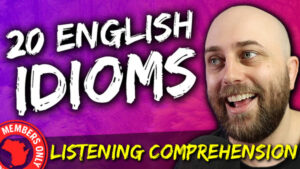
AE 1360 – 20 English Idioms Explained | Members Only
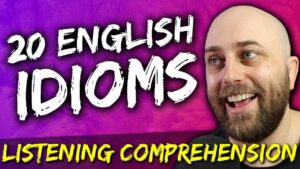
AE 1359 – 20 English Idioms To Transcribe
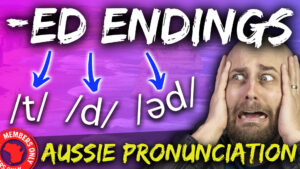
AE 1358 – How to Pronounce -ED Endings in Australian English [Members Only]
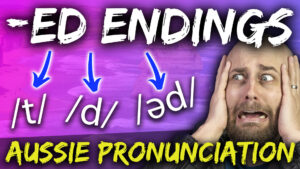
AE 1357 – How to Pronounce -ED Endings in Australian English

AE 1356 – Will AI Save Us Or Replace Us?
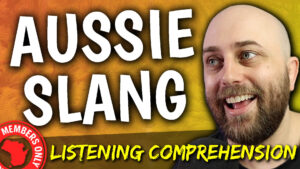
AE 1355 – 20 Aussie Slang Sentences Explained [Members Only]
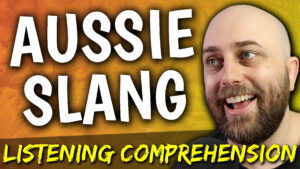
AE 1354 – 20 Aussie Slang Sentences to Transcribe

Share

Join my 5-Day FREE English Course!
Complete this 5-day course and learn how to study effectively with podcasts in order to level up your English quickly whilst having fun!


Want to improve a specific area of your English quickly and enjoyably?
Check out my series of Aussie English Courses.
English pronunciation, use of phrasal verbs, spoken English, and listening skills!

Have you got the Aussie English app?
Listen to all your favourite episodes of the Aussie English Podcast on the official AE app.
Download it for FREE below!



Want to improve a specific area of your English quickly and enjoyably?
Check out my series of Aussie English Courses.
English pronunciation, use of phrasal verbs, spoken English, and listening skills!
Leave a comment below & practice your English!






Responses